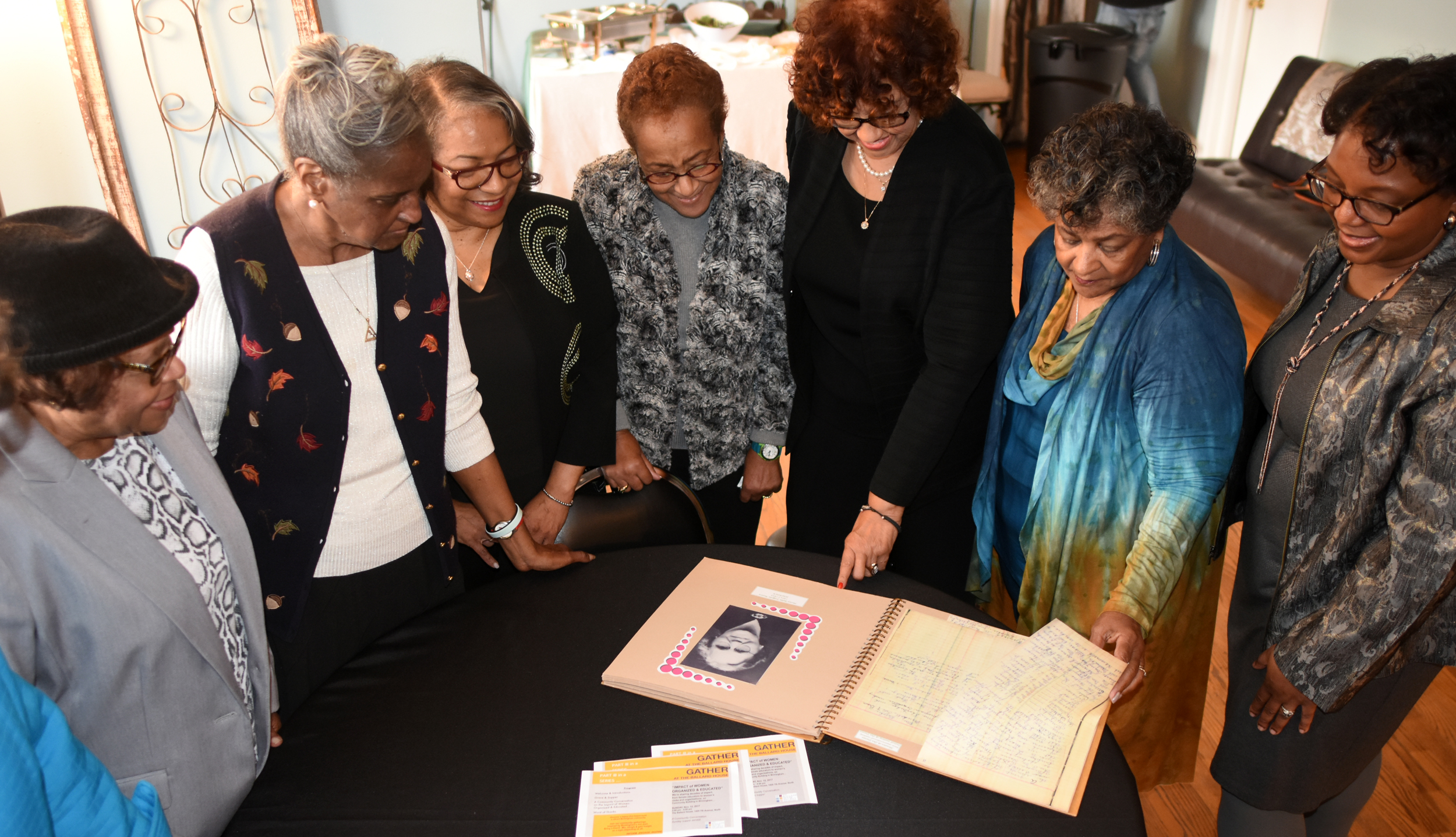
By Solomon Crenshaw Jr.
For The Birmingham Times
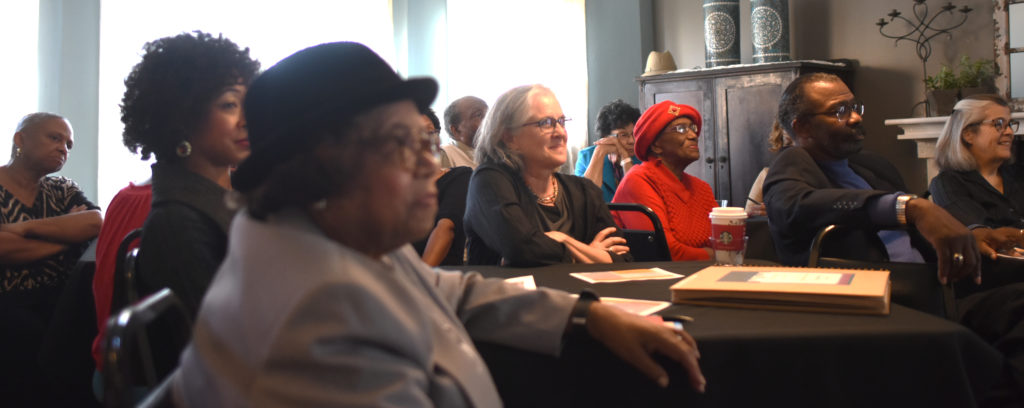
Sophia Miller could not have hidden her pride if she tried.
The Les Jeune Dames member was beaming as she displayed the “Memories, Then and Now” scrapbook that chronicled the rich history of her organization.
She explained what Les Jeune Dames means, “The Young Matrons . . .It’s very civic oriented. We make donations to different organizations. It’s not a lot but it’s what we’re able to do.”
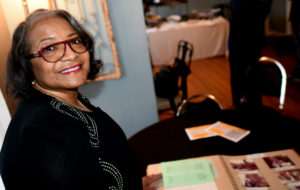
Miller was among the presenters Sunday as the Ballard House Project hosted its third in a series of community conversations; this one focused on the impact of black women and black women’s organizations in building Birmingham.
Ballard House Project Executive Director Majella Hamilton said there is a void in what people know about the impact of black women in developing this community.
“People don’t understand nor are they aware of the impact of women in building this community,” Hamilton said. “What we have learned is women – whether they be educated women or women through their organizations and clubs – worked to lift this community.
“They looked at the issues that were problems within the African American community,” Hamilton continued, “and they worked very, very hard individually and collectively in order to try to find solutions.”
Miller said she was “in awe” of the women of Les Jeune Dames when she and her husband Melvin moved to town in August 1987.
“Throughout the history of the club, it’s always been civic- and social-minded and involved in projects that aided society,” she said.
Best Chicken Salad Sandwiches
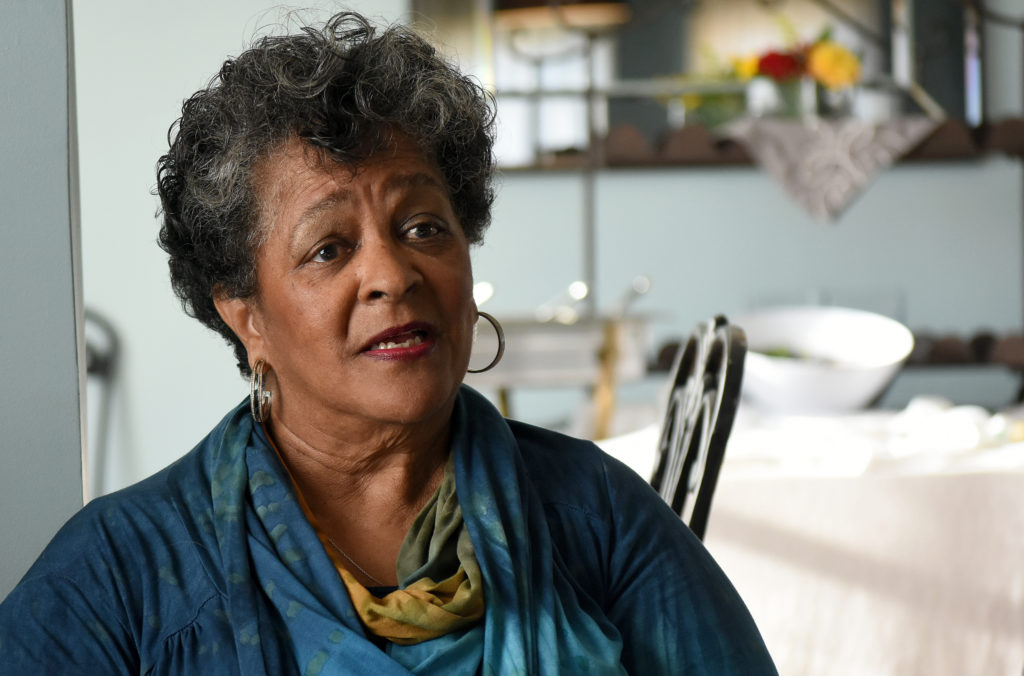
Barbara Shores, retired director of the Jefferson County Department of Senior Citizens, recalled having been a student at the Federation Day Nursery, the first accredited daycare operated by African Americans.
Shores, a daughter of the late Birmingham attorney Arthur Shores, also cited the women who supported the men who stood guard their home against threats of violence. That support included “the best chicken salad sandwiches” and coffee to keep the men awake during their vigil.
“They played a very important role that most people don’t remember,” she said.
Shores’ sister, retired judge Helen Shores Lee, noted the efforts of the Les Soures, a group that provides books and tutoring for schoolchildren.
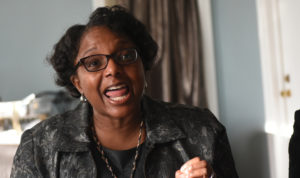
Dr. Tondra Loder-Jackson, a professor of education at the University of Alabama at Birmingham (UAB) and author of “Schoolhouse Activists,” cited the contributions of women in education, including Carrie Tuggle leading the charge to create Tuggle Institute. That institute began as a school for African American boys and expanded to serve boys and girls.
Peggie Myles took part in an event as a representative for the City Federation of Colored Women’s Club. It prides itself for teaching social skills and general etiquette.
“Basically, children in schools now are not taught that,” she said. “They don’t do a lot of the basic, every day, walking-around-sense things that they need to know.”
But, Myles said, CFCWC went further, contributing in civic and educational activities.
“Through the organization, many speakers were brought to Birmingham like Adam Clayton Powell,” a prominent political activist of the early 20th Century who fought for employment opportunities and fair housing.
Myles also noted the marker in the eastside parking lot of Legion Field that commemorates the first orphanage, daycare and nursery for blacks was located. CFCWC was instrumental to those coming about.
Margaret Beard is the retired director of compliance and minority affairs for Jefferson County Schools. She talked about the influence women had on her as she grew up in mining community of Dolomite.
“The McCarthys, the McCains – those people were role models for us,” she said of prominent Birmingham educators Lorenza McCarthy, Dr. Charles Allen Brown and Dr. John H. McCain. “They taught me how to treat people, how to live with people, how to help each other and not to ever put yourself up on a pedestal.”
Other clubs were cited during the two-hour session, including the New Era Club, the Sojourner Truth Club, the Progressive Workers and the Imperial Club.
“Women took the lead in making sure there were cultural opportunities for their kids and for their families,” said Odessa Woolfolk, president emerita of the Birmingham Civil Rights Institute and a Ballard House Project board member. “These organizations served to fill the gap between what was available in the society and what African Americans have.”



